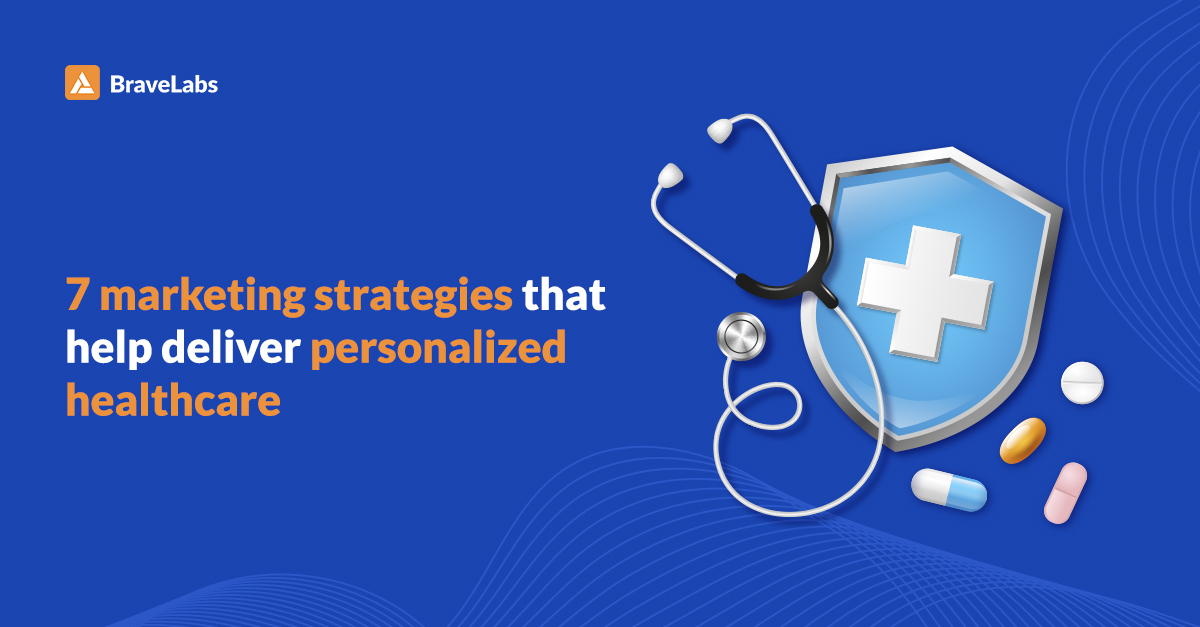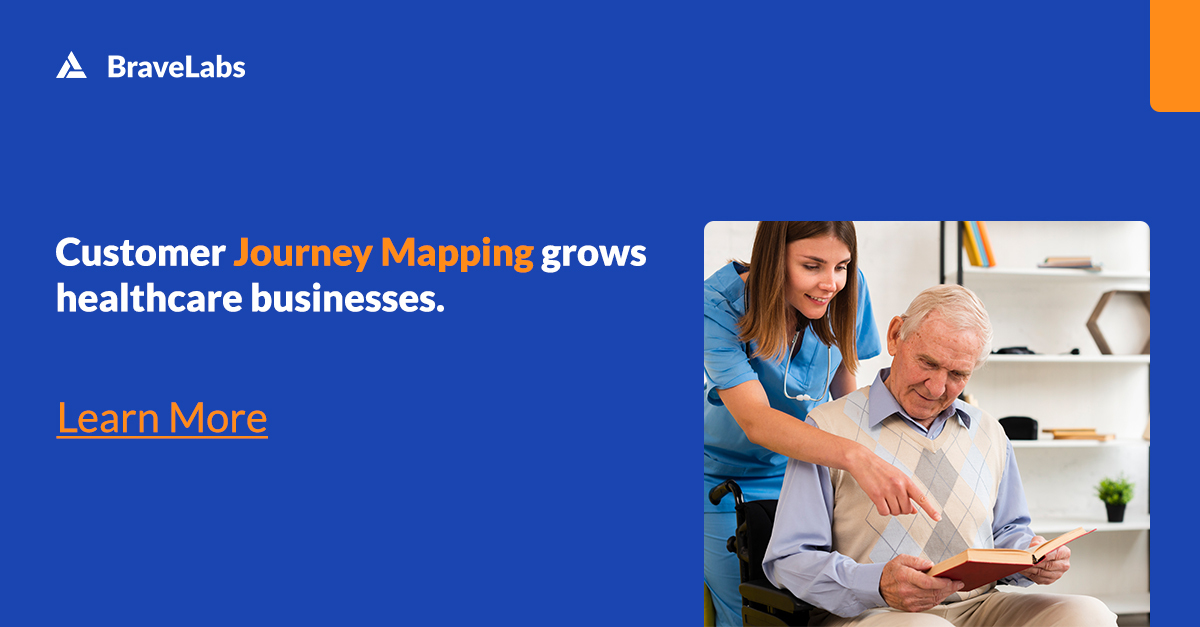7 marketing strategies that help deliver personalized healthcare
Personalized experiences can be found in almost every consumer industry today. From simple shopping trips to food delivery trips. So why should healthcare professionals lag?
A personalized experience is an
offering that’s becoming increasingly popular and common across all service
industries. With the help of personalization, businesses can meet the exact
needs and expectations of their customers. This allows them to bring more
patients in, as personalized experiences work as a differentiator from the
competition. Perhaps more importantly, personalization also allows businesses
to retain customers for longer.
This is true for the healthcare
industry as well. One-on-one boutique healthcare experiences are becoming more
common and popular because of the degree of personalization that they are
offering. But using modern technology, the healthcare industry is figuring out
more ways to personalize the healthcare experience for their patients.
Healthcare today is more
personalized than ever. With the growth of social media, artificial
intelligence, and virtual assistants, it is now possible to market healthcare
more efficiently. Healthcare institutions can use complex artificial
intelligence and machine learning models provided by SaaS companies to
personalize experiences. Personalized marketing strategies are helping
healthcare providers deliver on complex personal needs.
Healthcare today is more
personalized than ever
Healthcare
today is more personalized than ever. As a result, it’s an industry that is
changing at a rapid pace and consumers are demanding personalized healthcare
solutions that allow them to get the right treatment for their specific needs.
If you want
your business to thrive in this environment then you need to be aware of the
marketing strategies that help deliver personalized healthcare. This shift
began in the 1980s when doctors began realizing that they had a lot of power
over the course of their patient’s lives. They realized that if they could
predict what diseases would occur in a particular patient and then treat them
appropriately, they could reduce future health costs by preventing those
illnesses from occurring in the first place—and even save lives.
Though there
are many ways that doctors have used this knowledge to improve care for their
patients, one of them stands out as particularly important: personalized medicine.
The concept behind personalized medicine is simple: each person’s body has its
own unique set of conditions and needs, so while some treatments may work well
on some people’s bodies, they may not work on others.
Here are
seven personalized healthcare
marketing strategies that you can use today.
Artificial intelligence
and virtual assistants
Artificial intelligence and virtual
assistants are changing healthcare marketing. In the past, healthcare marketers
used to be limited by their budgets and staff restrictions. But now, with the
advent of AI and virtual assistants, they can reach out to more people at a
lower cost without compromising on quality or efficiency.
The most
common use cases for AI and virtual assistants in healthcare are:
Automated
customer support: You can use AI to create automated responses for customers
with questions about your services or product features. This helps you save
time and money by not having to hire extra support staff.
Personalized
communication: You can use AI to personalize your communications with patients
by sending them relevant content based on their preferences. This helps you
engage more customers and improve customer satisfaction levels.
Use ChatBots and more
Chatbots are
quickly becoming a popular marketing channel for health institutes. They can be
used for customer service, lead generation, customer retention, and product
support. The chatbot enables you to provide personalized healthcare services
across channels such as email or phone calls and even on Facebook Messenger.
It also helps
you reach out to new patients through social media channels like Twitter or
Facebook by offering them exclusive deals on your website or landing page when
they opt-in from the bot through email or phone call (which is called an
‘opt-in’).
Race to the cloud to stay ahead of the
competition
Cloud
computing is the future of healthcare, and it’s a great way to deliver
personalized services.
Cloud
computing offers many benefits to your business. Cloud offers cost-effective
solutions that can be scaled up or down as needed. It also has secure and
reliable platforms for storing data or running applications on demand, making
sure that you stay on the right side of regulations.
Additionally,
a cloud-based solution allows you to provide better customer service by giving
each patient access to their account manager. This means that when someone
calls in with questions about their health insurance coverage or how much money
they’ve spent on lab work this month, they’ll get an answer directly from the
person responsible for handling those issues for their entire database.
Marketing at scale using
the power of the internet of things
The internet
of things (IoT) is a large-scale phenomenon that connects physical devices,
vehicles, home appliances, and other items embedded with electronics, software,
sensors, and network connectivity. It enables these objects to connect and
exchange data.
The IoT has
the potential to revolutionize healthcare by transforming how we interact with
information in our daily lives. The number of connected devices will grow
exponentially as they become cheaper, smaller, and easier to use than
traditional technology options such as smartphones or tablets.
Make it more affordable with advancements in
technology
The cost of
personalized marketing is decreasing, and the market for it is growing.
Personalized
healthcare is becoming more affordable with advancements in technology. For
example, virtual reality can be used to make patients feel more at ease during
their treatments by allowing them to experience the procedure first-hand. This
helps them overcome their fears and anxieties so they can better understand
what they’re going through before undergoing any procedures or surgeries.
Focus on the things that
make us different
The US is a
large healthcare market and it’s growing rapidly. The country has a large
population, with more than 330 million people, making it one of the most
populous countries in the world and a diverse age group across demographics. As
a result, there is a lot of potentials for healthcare marketers to tap into –
especially when it comes to personalized healthcare solutions like those
offered by Google Health or Apple HealthKit!
The US also
has some incredibly diverse cultures within its borders; there are communities
where almost every person speaks another language aside from their native
tongue (and even then sometimes only one person does). This means that there is
a lot of opportunity for giving personalized healthcare services.
Focus on the Patients
This means you shouldn’t be
thinking about what’s best for you or your company. You should be thinking
about what’s best for your patients, and then doing whatever it takes to
deliver that care.
One of the biggest ways you can
do this is by educating yourself on how your patients are feeling and
thinking—and then delivering personalized care experiences based on those
needs. When your patients know what they need from you and how much they
deserve, they’re more likely to come back again and again—and tell their
friends and family members about how great it was!
Conclusion
Healthcare today is more
personalized than ever. More people are living longer and getting sicker, which
means that the healthcare system needs to adapt on many levels. The cost of
health care has increased significantly in recent years, making it harder for
people to afford the services they need.
As a result, personalized
healthcare—where patients have access to their doctors or specialists who treat
them personally—is becoming more affordable than ever before. This trend will
continue as we enter into an era where technology becomes more advanced and
sophisticated so that we can take control of our own healthcare decisions
entirely within our own homes or offices (or even at Starbucks).
We’ve also seen an increase in
demand for personalized care because people want control over their own lives
rather than having someone else make those decisions for them.
This is just the tip of the
iceberg. Healthcare today is more personalized and we have an opportunity to
change lives in India by providing better healthcare services and products. If
you are looking for a way to market your product or service, contact us
at BraveLabs. We help healthcare professionals deliver personalized
healthcare consumer experiences to their patients.

.jpg)


Comments
Post a Comment